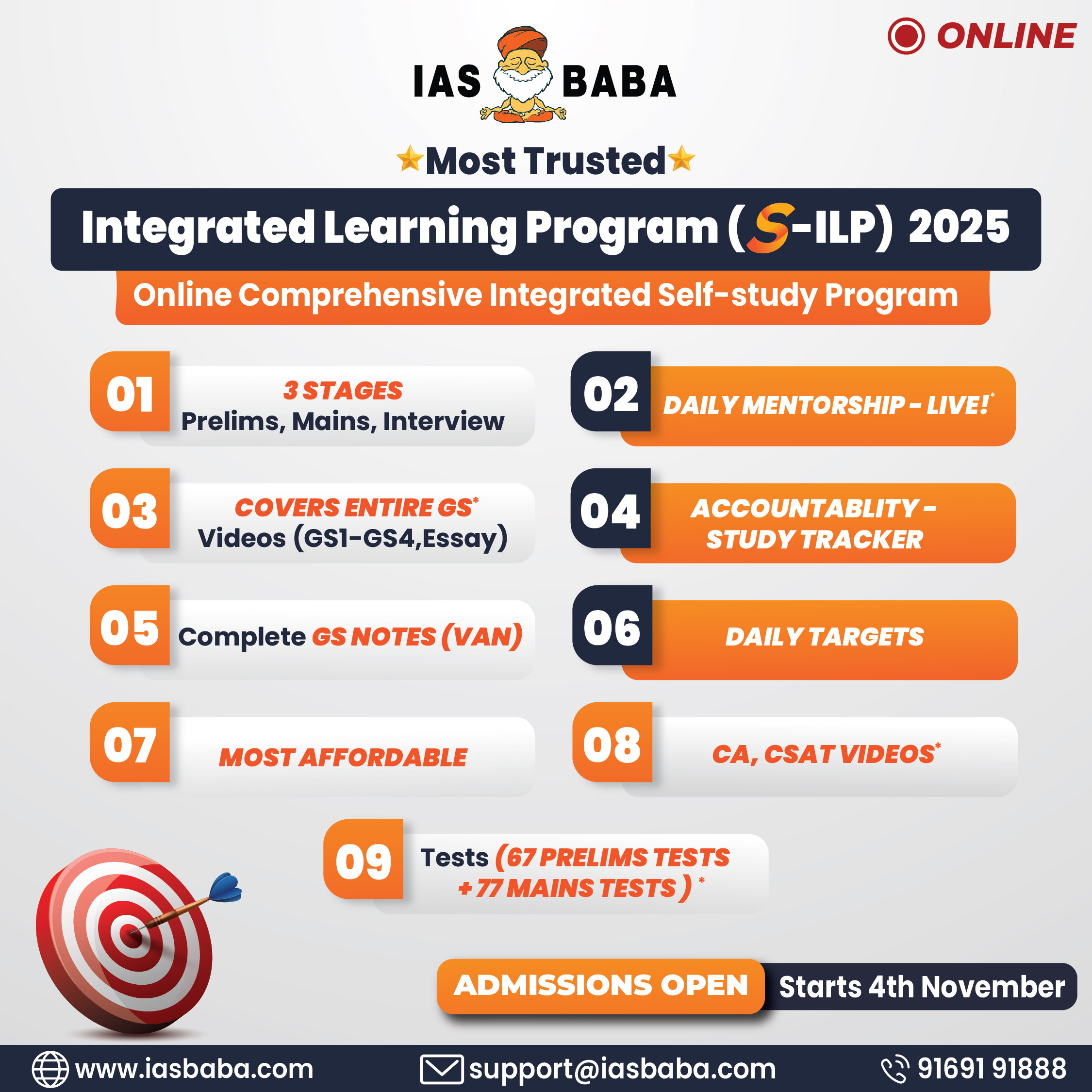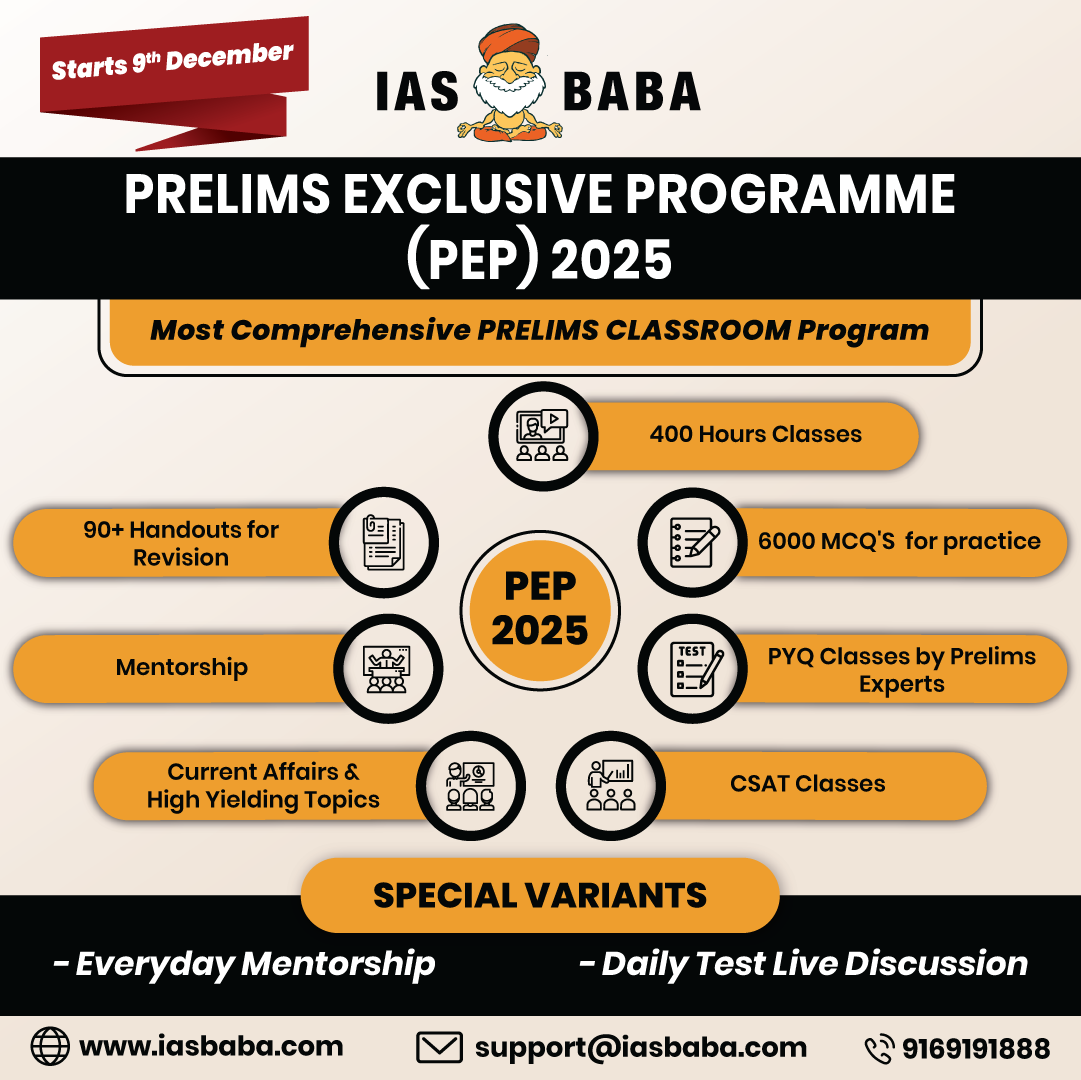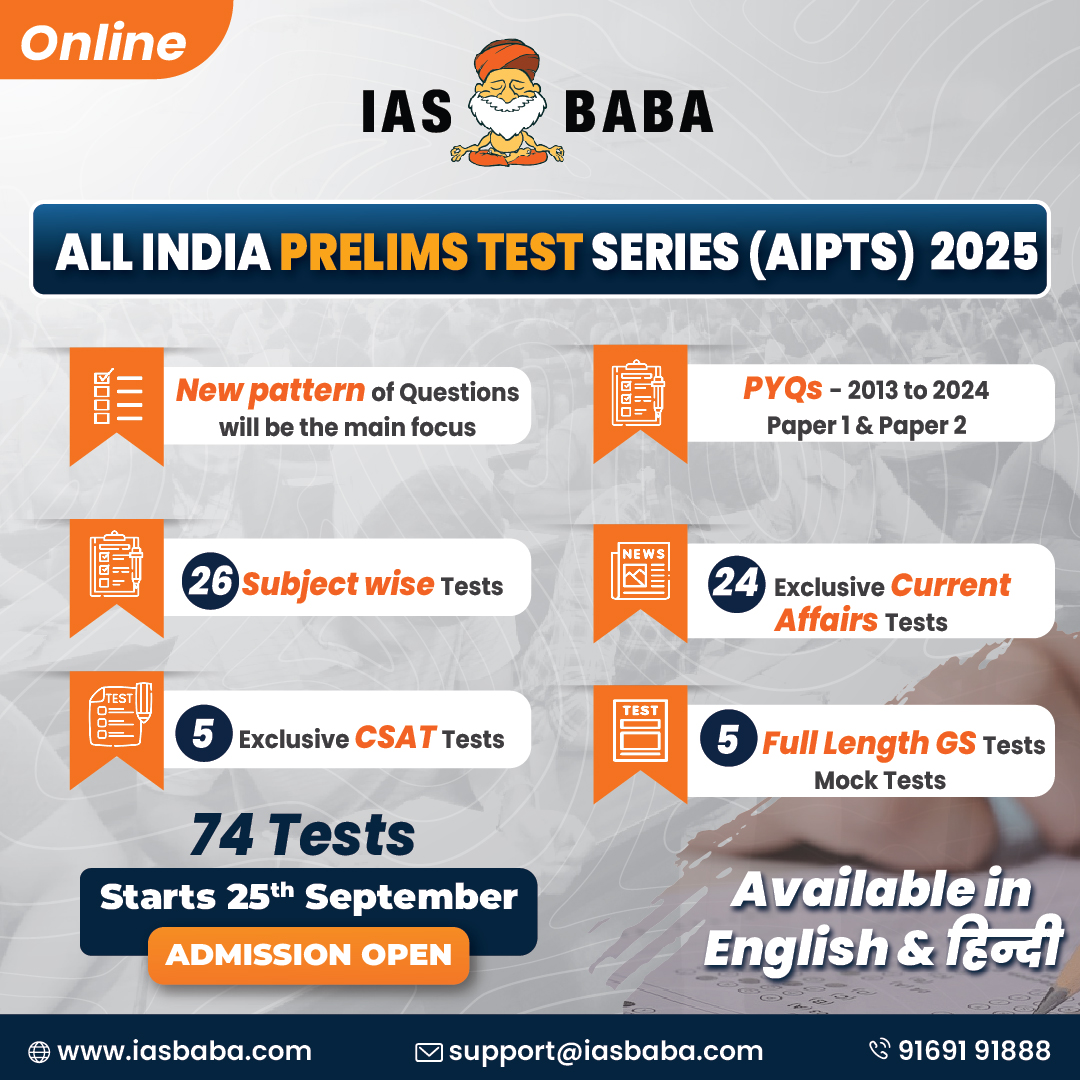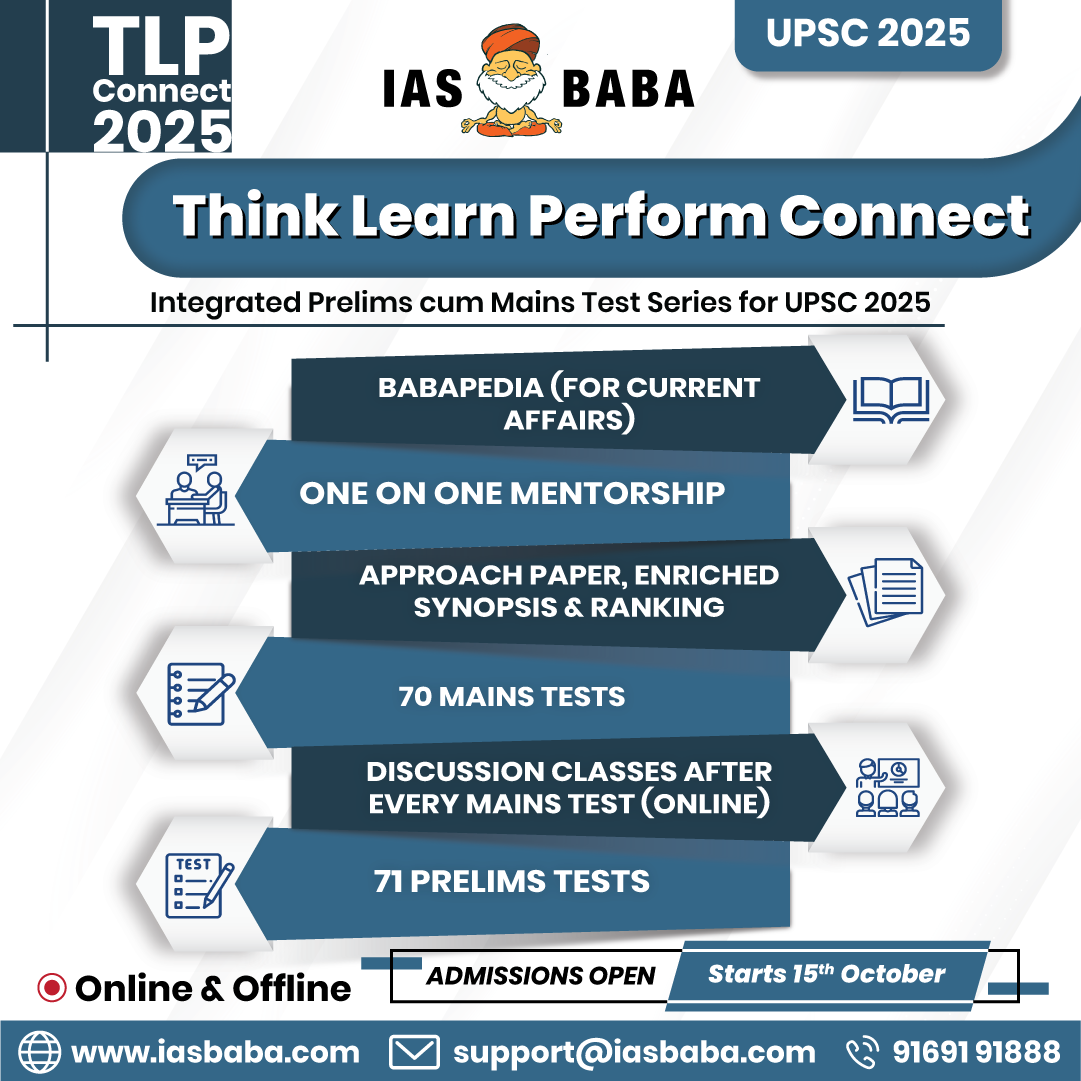IASbaba's Daily Current Affairs Analysis, IASbaba's Daily Current Affairs July 2015, International, UPSC
Archives
IASbaba’s Daily Current Affairs- 15th July, 2015
INTERNATIONAL
Iran Nuclear Deal: Challenges and Implications
- The nuclear deal reached on July 14, 2015 between Iran and six world powers is a historic step forward that solves an over-a-decade-long stand-off between Iran and the West. It sets the stage for a radical realignment of equations in West Asia, and has the potential to transform the conflict-ridden region in the long term.
Why it’s a wini-win situation for all?
- Sanctions imposed by the U.S., the European Union and the UN would be lifted, in return for Iran agreeing to long-term curbs on its nuclear programme.
- All of Iran’s nuclear facilities would be allowed to continue operations.
- Iran has also agreed to a ‘snapback’ mechanism, under which some sanctions could be reinstated after 65 days if it violated the deal. A UN weapons moratorium would remain for 5 years and a ban on buying missile technology for 8 years.
How will this reconciliation help West Asia?
- The changing geopolitical dynamics of West Asia have also played a major role in bringing the U.S. and Iran together. If Iran is allowed to claim the economic and diplomatic status it deserves, that could have a positive impact on several conflicts in the region.
- The real potential of the deal lies in the fact that it has removed the greatest obstacle for reconciliation between Iran and the U.S.
- Now, both the countries are cooperating in Iraq in the war against Islamic State.
What are the Challenges?
- Powerful sections, including the Republicans in the U.S., hardliners in Iran, and the Israelis and Saudis, remain opposed to a U.S.-Iran reconciliation.
- But if Iran and the big powers continue to show the will and the commitment they have demonstrated during the talks, the goals of the deal will be achievable.
From India’s Perspective:
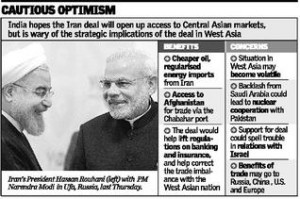
- India has welcomed the successful conclusion of negotiations on the Iranian nuclear issue between Iran and the Europe 3+3 (US, Russia and China) and the UN atomic energy agency IAEA. However, India is concerned about the security fallout – (See the picture above for India’s concerns with the deal)
- India has always been supportive of Iran’s right to peaceful use of nuclear energy while at the same time upholding the international community’s strong interest in the exclusively peaceful nature of Iran’s nuclear programme.
Benefits for India
- Connectivity – The number of opportunities that the opening of the International North-South transport corridor (from India to Central Asia) would give, especially access to Afghanistan for trade via Chabahar port.
- Economic Co-operation: Trade & Energy Co-operation – India and Iran have an annual bilateral trade of about $14 billion, with an extremely high balance of trade deficit, as India has been unable to pay Iran about $8.8 billion for oil due to sanctions.
- Earlier in March 2015, the Indian Government had completely stopped oil imports for the first time in more than a decade in order to keep its international pressure.
- Once sanctions are lifted, not only will oil imports from Iran be regularised, they will be cheaper owing to Iran’s estimated added production of at least 500,000 barrels of oil per day (by 2016).
- Moreover, banking and insurance procedures with Iran will also ease and India’s current concerns over the lack of access to Afghanistan could also be resolved by the opening of the route via Iran’s Chabahar port instead of Karachi.
India’s Concerns: Nuclear arms race
- India’s concerns over the lifting of sanctions on Iran could see a backlash from rivals Saudi Arabia, that has hinted in the past months that it would try and ‘match Iran’s nuclear capabilities’ if the deal went through. Indian experts believe this could mean closer cooperation with Pakistan.
- India will also have to balance its support for Iran with its mushrooming ties with Israel that has taken a very strong position against the deal.
- Once Iran opens up its economy, it may not give India preferential treatment, as Russia and China have been stronger supporters, and Europe and US may offer better technology and opportunities.
Connecting the dots:
- What are the geostrategic implications of the deal?
- Will the deal lead to destabilized West Asia? Look at both the positives and the negatives.
- What steps should Indian Government take to ease the above concerns? Are the concerns justified?
India – US: Issues
Five days ahead of the 10th anniversary of the signing of the landmark Indo-U.S. nuclear deal, U.S. Ambassador Richard Verma spoke about the expanding range of India-U.S. relations, even as discussions continue over differences in issues such as nuclear cooperation, patent laws, and climate change.
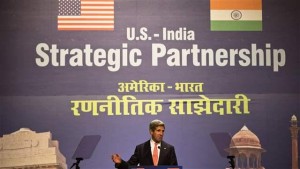
What is the present status of nuclear cooperation (INDIA+U.S.?)
- Nuclear cooperation brought the two governments, the two peoples, together, and it brought U.S. companies and technology to help solve India’s power issues and to bring a non-carbon intensive power source to India.
- It also brought India back into the nuclear fold by bringing a certain number of its facilities under international safeguards.
- The establishment of the insurance pool is also an important step to provide insurance coverage, where there may still be some risk and exposure.
How is U.S. financing the Clear Energy?
- Clean energy and climate is the new and significant pathway of cooperation for the future.
- S. brought nearly $4 billion to the table already through Exim Bank, TDA [Trade and Development Agency], and USAID [U.S. Agency for International Development].
- Just last week U.S. established another multi-million dollar fund with Indian counterparts, to bring green technologies and energy solutions to communities where they don’t currently exist.
What is the stand of India-U.S. in the issue of drug patents?
- There’s a difference of opinion on Section 3d of the Patent act.
- This section states that inventions that are mere “discovery” of a “new form” of a “known substance” and do not result in increased efficacy of that substance are not patentable.
- This implied that India did not support patents for inventions which were minor modifications and prevented undue monopoly during the extended period of patent protection by the company.
What are the Deals on Which India-U.S agreed with regards to climate change?
The United States and India agreed on:
- Enhancing Bilateral Climate Change Cooperation
- Cooperating on Hydroflurocarbons (HFCs)
- Expanding Partnership to Advance Clean Energy Research (PACE-R)
- Accelerating Clean Energy Finance
- Launching Air Quality Cooperation
- Starting Technical Cooperation on Heavy-Duty Vehicles and Transportation Fuels
- Initiating Climate Resilience Tool Development
- Promoting Super-Efficient Off-Grid Appliances
- Transforming the Market for Efficient and Climate-Friendly Cooling
- Demonstrating Clean Energy Initiatives on the Ground
IAS BABA’s View
- India’s commitment to ratify the treaty on supplementary compensation, the one that focuses on liability, these all are important steps that would bring us to the conclusion of commercial arrangements which are very much under way now.
- India is leading the world in so many categories.Indian innovators want strong intellectual property protection and enforcement.
- It’s interesting that both the U.S. and India have similar elements of relationship with China, involving both competition and cooperation
Connecting the Dots:
- What has been the progress in technological cooperation between the two countries, especially in clear energy?
- S. drug companies have raised objections to Indian patent laws several times. How do you reconcile these differences?
- What’s the view in the U.S. about India’s engagement with Russia and China?



